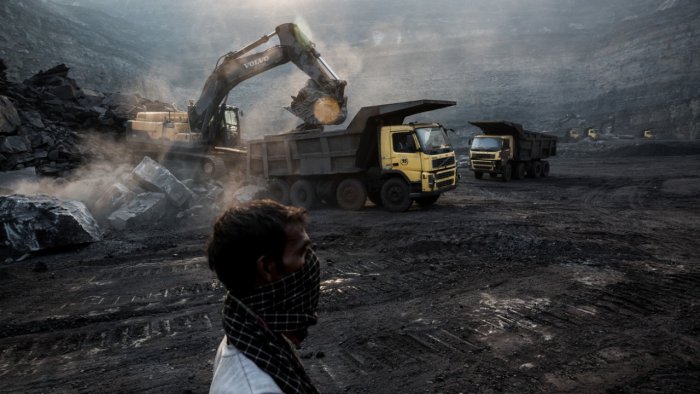The use of coal as a fuel will be prohibited in the National Capital Region (NCR) beginning January 1, 2023, according to the Commission for Air Quality Management (CAQM). Coal may no longer be utilised for industrial or household uses once the prohibition is in place, although thermal power plants will be excluded. In locations where PNG infrastructure and supplies are already present, a prohibition on coal usage will take effect on October 1, 2022.

In a letter released on Wednesday, the CAQM stated that coal is the most common industrial fuel in the NCR, and that the region’s industries utilise roughly 1.7 million tonnes of coal yearly, “with around 1.4 million tonnes consumed in six key industrial areas of the NCR alone.” To address concerns about air pollution in the NCR, the plan aims to phase out the use of coal as a fuel.
According to a source apportionment study conducted by The Energy and Resources Institute in 2018, industries using coal, biomass, pet-coke, and furnace oil contributed around 14% of the industrial sector’s 30% contribution in PM2.5 levels in winter in Delhi, while brick manufacturing contributed 8%, power stations 6%, and stone crushers 2%. According to the Delhi administration, all 1,607 industrial units in the city have now shifted to PNG.
Experts believe the prohibition would help reduce the usage of polluting fuel in the NCR. “We need to get rid of all filthy fuel if we want a regional clean-up,” said Anumita Roychowdhury, executive director, research and advocacy, Centre for Science and Environment. Coal is now the most common industrial fuel in the NCR, and it’s critical to have clean fuel in all sectors while aiming for major air pollution reductions, she added.
Overall, the shift is good from the standpoint of air quality, according to Karthik Ganesan, fellow and head of research coordination at the Council on Energy, Environment, and Water.
In response to the exemption granted to thermal power plants, Roychowdhury stated that although Delhi may shut down its coal power plants, the NCR would need to determine where electricity would come from.
“When compared to huge sources, the implementation will require thousands of little point sources, and compliance monitoring will be that much more difficult,” Ganesan added.
Gas pricing, according to Roychowdhury, might be a key factor in enforcing the prohibition. “Natural gas now costs more than coal.” Industries will be willing to change if we can develop the right price strategy,” she added. Infrastructure, as well as supply, must be scaled up to enable appropriate execution of the prohibition, she noted.
Pipelines for gas are yet to reach some areas, according to J N Mangla, president of the Gurgaon Industrial Association, which has roughly 400 members. Furthermore, converting to a gas-powered system will necessitate costly equipment adjustments.
According to statistics from the CAQM in August last year, 408 industrial units out of 1,469 listed for switching to gas have done so in Haryana’s NCR districts. In Uttar Pradesh’s NCR districts, 1,161 industrial units out of 2,273 had switched to gas, while in Rajasthan’s NCR area, 124 units out of 436 had switched to gas.
